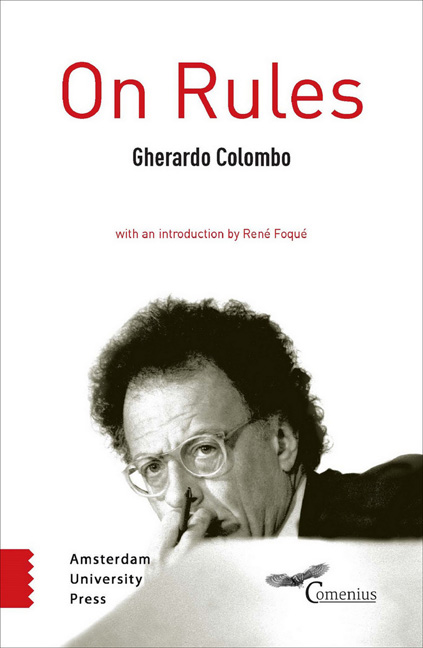Book contents
- Frontmatter
- Introduction: Gherardo Colombo’s Concern for the Democratic State under the Rule of Law: A Work in Progress
- Why?
- 1 An Imaginary Country
- Contents
- Part I The Ambiguities of Justice
- Part II Horizontal Society and Vertical Society
- Part III Towards a Horizontal Society
- Part IV How Do We Get There?
- Conclusion
- Acknowledgments
- Frontmatter
- Introduction: Gherardo Colombo’s Concern for the Democratic State under the Rule of Law: A Work in Progress
- Why?
- 1 An Imaginary Country
- Contents
- Part I The Ambiguities of Justice
- Part II Horizontal Society and Vertical Society
- Part III Towards a Horizontal Society
- Part IV How Do We Get There?
- Conclusion
- Acknowledgments
Summary
From the same perspective, privilege is fascinating because it gives a feeling of security. So as to avoid fear, human beings would almost be willing to die. They are certainly willing to give up a substantial portion of their freedom.
They accept being monitored by surveillance cameras in each and every public place, and allow their privacy to be restricted by dozens of other intrusions. They install alarm systems, armoured doors, iron bars, turning their houses into what looks like a prison – difficult to enter, but sometimes also difficult to leave.
Increasingly, fear becomes a tool for political use. The promise of freedom from fear attracts votes, because fear rises from the gut, not the brain, and so hardly lends itself to rational discussion.
The perception of insecurity can be enhanced and artfully steered by filtering information, fuelling fear, emphasising the more upsetting aspects, so that the promise to make people secure becomes even more attractive.
The results of statistical surveys are not important. Although it can be demonstrated that we more frequently are the victims of aggression by relatives, friends, or acquaintances, what creates terror are strangers, the different people who come from afar. They are the ones who scare citizens, and it is with reference to them that security is discussed. Fear divides, erecting barriers against foreigners. It hinders recognition, fostering the basic beliefs on which vertical societies rest. What cannot be overlooked on a global view, is the fact that the closer one gets to the top of the pyramid, the more a society tends to protect security. Members of the government are surrounded by people whose only task is to take care of the politicians’ security.
If you examine the statistics however, workers in the building sector would be much more in need of an armed escort.
The desire for privilege, difference, and security pushes people to shamelessly engage in unrestrained competition. Thus they enter a vicious circle, an endless race towards asserting their superiority, without accepting limits – not even the need to preserve natural resources, which in the long run jeopardises the survival of humankind itself.
- Type
- Chapter
- Information
- On Rules , pp. 126 - 127Publisher: Amsterdam University PressPrint publication year: 2016

